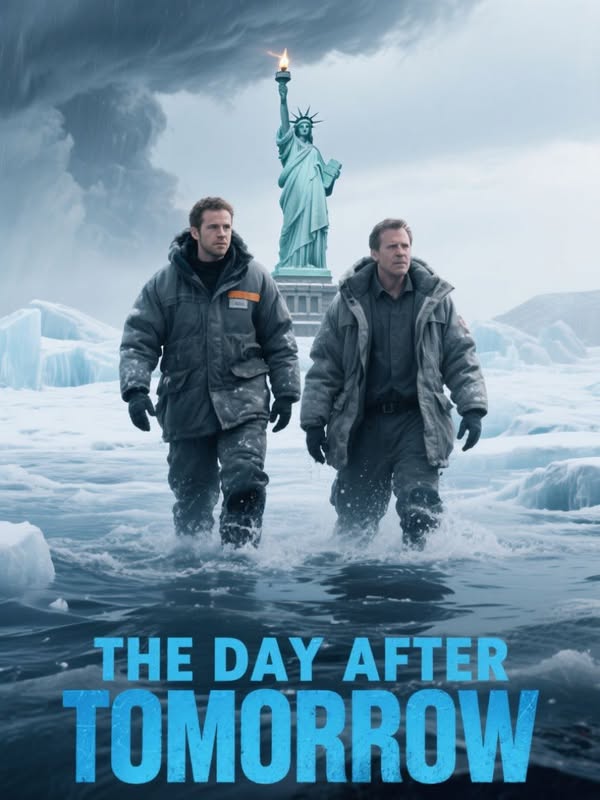The Day After Tomorrow (2004)

The Day After Tomorrow is an exhilarating disaster film released in 2004 that explores the catastrophic effects of climate change through a gripping narrative and stunning visual effects. Directed by Roland Emmerich, known for his flair for large-scale spectacles, the film combines thrilling action with a thought-provoking message about environmental responsibility.

The story revolves around a series of extreme weather events triggered by global warming, leading to a new ice age. As massive storms and freezing temperatures engulf the planet, a paleoclimatologist, played by Dennis Quaid, embarks on a perilous journey to save his estranged son, who is trapped in New York City amidst the chaos. The film effectively weaves personal stakes with global consequences, highlighting the fragility of human life in the face of nature’s fury.
The Day After Tomorrow excels in its ability to create tension and urgency, showcasing breathtaking sequences of destruction and survival. From towering tidal waves to devastating snowstorms, the visual effects are both spectacular and haunting, offering a visceral portrayal of the potential consequences of climate neglect. The film’s pacing is relentless, ensuring that audiences remain on the edge of their seats as the characters grapple with life-and-death situations.

Character development plays a crucial role, as the film delves into the relationships between family members and the sacrifices they make for one another. The emotional core of the story is strengthened by the performances of the cast, particularly Quaid and Jake Gyllenhaal, who portray the father-son dynamic with depth and sincerity. Their journey through the treacherous landscape serves as a metaphor for hope and resilience in the face of overwhelming odds.
The screenplay balances thrilling action with moments of introspection, prompting viewers to reflect on the broader implications of environmental change. Themes of responsibility, survival, and the interconnectedness of humanity are woven throughout, making the film not just an action spectacle but also a call to action for viewers to consider their role in protecting the planet.
Overall, The Day After Tomorrow stands out as a significant entry in the disaster genre, combining entertainment with a critical message about climate change. With its impressive special effects, strong character arcs, and a director who masterfully orchestrates chaos, the film captivates audiences while raising awareness about an urgent global issue. It serves as both a thrilling cinematic experience and a poignant reminder of the power of nature and the necessity of environmental stewardship.











